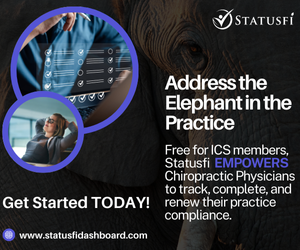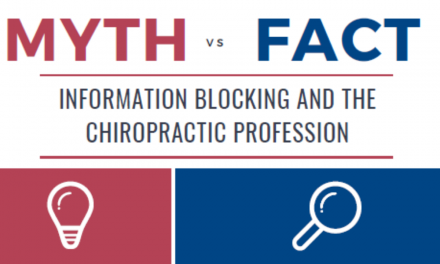
Why HIPAA Compliance Is Important
Dr. Evan highlights the significance of consistent HIPAA compliance and cybersecurity training, advocating for tools like Statusfi to ensure crucial protection for healthcare practices. Watch the video for details!
Referenced Link:
Mastering HIPAA Compliance in Chiropractic Practice: A Comprehensive 4-Hour Online Course
Transcript:
Marc:
Dr. Evan going is joining us today. And we’re going to talk briefly about HIPAA, and mainly because what we have found over the course of time is we have a lot of doctors who set up their policies either when they first got into practice or when HIPAA first really became a thing, right? So back in 2020 22,004, they set up their policies, and then they stick them on a shelf. And that’s really where they’ve resided ever since. So, Dr. Evan, you’ve got Dr. Anderson joining you tomorrow, you’re going to be talking a little bit about HIPAA. What are some of the highlights that you’re going to be covering?
Dr. Gwilliam:
You know, it’s important for doctors to know that HIPAA is an ongoing process, it’s not a, you know, collecting dust on the shelf, you suddenly have to be aware of at all times, we have to monitor it and show that we’ve done so. I want to limit the doctors to leave having a clear idea of what to do next. And that’s really important. I also want them to understand why, or what should motivate them to work on HIPAA. And one of those is there are penalties and there’s fines and such and those are unpleasant. But beyond that, there’s practical day-to-day benefits to being HIPAA compliant. And I am not exempt from recognizing that HIPAA is just not an exciting topic. You know, you hear it and you just shut down. But there are actually pieces of HIPAA that can help protect your bottom line. And doctors have to recognize that there are not just risks for government rules you have to follow, but we see in the marketplace, all the time, that healthcare is at risk for attacks, and breaches, and security in terms of our technology is so huge and so important. Doctors can take steps and be compliant with HIPAA rules, but also, aside from HIPAA just be protecting their practice and their patients, if they understand a few of these things and implement some of these steps.
Marc:
You know, Doctor Gilliam, it’s interesting. I just saw a study. In fact, we were just talking about it before we jumped onto record. I just saw this study that in 2023, that the healthcare sector was the number one sector that was impacted by ransomware and cyber attacks. Interestingly, it was actually by they were eight times they had eight times more cyber incidents than the communications industry had. So sometimes they think that oh, no, we’re small, so we have this security by obscurity. And the reality is that we just need to be prepared. So no fear factor here, just more of preparing. Right?
Dr. Gwilliam:
Right. If I was a cybercriminal, you know, I would look at the small practices, I think that they’re the ones more likely to have weak practices in place. And so I’m not a cybercriminal for the record. But if I was, that may be where I would go, because I think I’d be more likely to find vulnerabilities and be able to find things that could exploit. I think healthcare is one of the bigger targets simply because there are so many points of communication with the insurers and with the clinics and clearing houses. And there are areas of vulnerability. And so we just have to figure out what they are, and build protections, you know, and be ready for whatever comes out.
Marc:
You know, one of the other things I think sometimes that we miss is that reminder that we’re supposed to regularly be training within our practices, right? So training staff is another key element, I assume you all will be talking about that tomorrow as well.
Dr. Gwilliam:
For sure, see, training is actually not that hard. There are lots of resources out there. So we’ll make sure the audience knows where to go find it. But ultimately, they need to understand the basics of the rules that they need to be following so that they don’t violate anything. And also again, so your patients are happy, and they feel like they’re safe working with your clinic from a privacy standpoint. So we’ll make sure that there are lots of ideas on how to do training and make sure you know, how it’s compliant and what kind of resources you have. There are lots of great options out there. And it doesn’t have to be boring, it can be relevant and useful. And, again, it can protect your bottom line.
Marc:
Now, as you’re going to be going through your training tomorrow, are you gonna layer in some information for at least for ICS members that have access to Statusfi the compliance dashboard on on basically how to track that and, ensure that they’re staying compliant and checking the right boxes, if you will.
Dr. Gwilliam:
And you know, ICS members already have this head start, they have this leg up with this Statusfi tool, we’ll look at a little bit and show you how you can use it to make sure you’ve done everything you need to do. And it’s so easy to see in the interface, you know, your percentage of completion so you just work towards that 100% is the goal but you don’t have to swallow it all at once. You can do a couple of checkboxes here and there, get a few things done, and know that you’re making progress and doing a good faith effort and you have this great tool already who Statusfi so they have this like I said this advantage to track what’s going on.
Marc:
Well doctor,. Thank you. It’s great having you as part of Practisync. It’s great to have you as part of the Illinois Chiropractic Society family. But we look forward to seeing you tomorrow. But hopefully, everybody takes away from our little conversation. It’s more than even just your education tomorrow. It’s that reminder that HIPAA compliance is actually important for your practice and for you. And we just want to give you the tools to be able to get from point A where we are today to point B, which is that compliance, that full compliance for your practice.
Dr. Gwilliam:
One more little plug for the presentation itself. HIPAA, again, is a bit of a snoozer on its own, but with myself and Dr. Anderson, we’re gonna make it kind of fun. We got some fun little surprises. Y’all just give you guys one hint, wigs. There’s going to be wigs involved. So just come have a good time. Learn what you need to learn. I promise we’ll make it fun and interesting.
Marc:
Fantastic. Thanks, doc and I will catch you next week.
Dr. Gwilliam:
Thank you



















